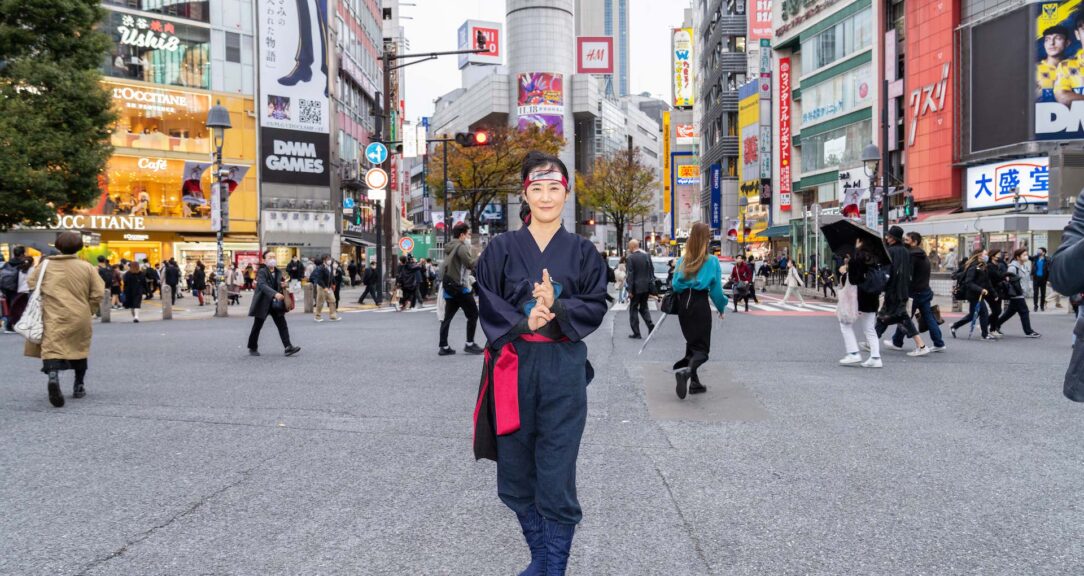Las Vegas bills itself as the entertainment capital of the world, but when the global economy ground to a halt during the pandemic, it looked more like a ghost town.
The local economy was dealt a bad hand in March of 2020, when all gaming operations ceased in order to combat the spread of Covid-19. The unemployment rate spiked to 33%, one of the highest in the United States. With 26.5% of Southern Nevada’s jobs coming from gaming and tourism-related activity, the financial impact of the shutdown was immense.
Two years into the pandemic, employment has rebounded, and the city has new life. The unemployment rate has shrunk to 6%. Employers are hiring, and employees are finding work in a city that has diversified its entertainment options to include professional sports, fresh gaming technology and a host of other attractions. Other employees never stopped working, keeping the city afloat during the worst of the economic storm.
Now that tourism has picked back up for the glittering city in the desert, we talked to six Las Vegans about their first and future paychecks.
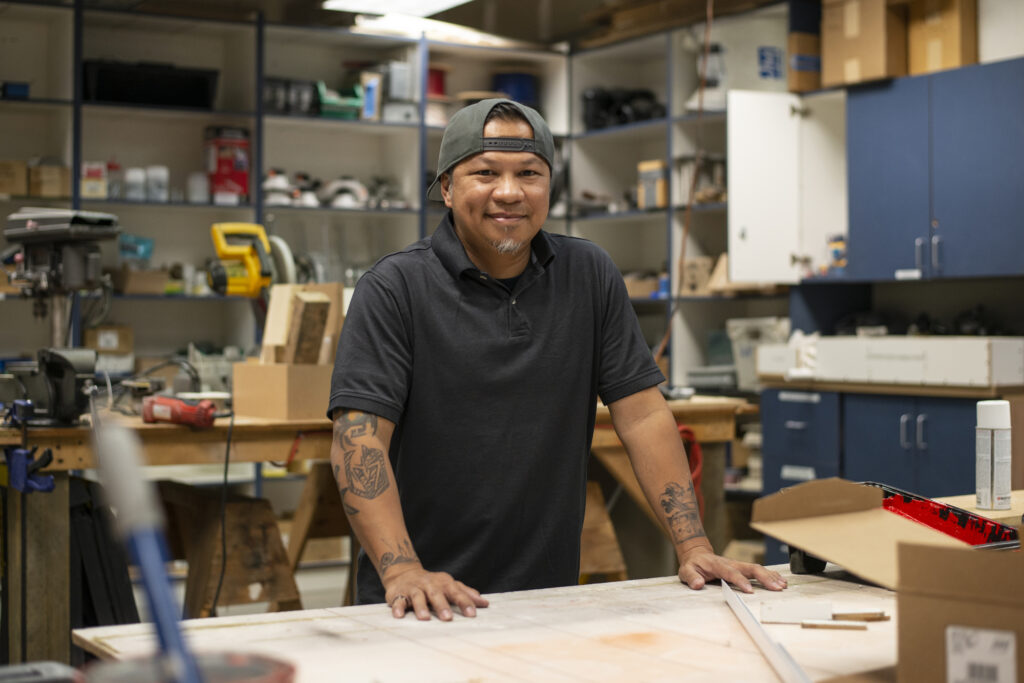
Rudie Tanudtanud, 46
Maintenance worker and bartender
In my first job, I was a busser clearing tables at a chain restaurant. I’ve worked most of my career in the food and beverage world, which we all call “the industry.” I worked my way up through the various levels of the industry from bussing tables, through food running, and on to being a server, which I did for about three years. Just like any food service job, tips are a major part of your take-home pay. Back then about a third of my pay came from tips.
Then, through a friend, I made the switch into bartending, and I tended bars all over Vegas. The money in bartending is phenomenal. And depending on the house you could make all the way up to $19 an hour base wage. And since tips are 60 to 70% of my bartender income, tips can push it up pretty high. Tending bar right before the pandemic, I was probably doing as good as I’d ever done. And when everything shut down, we were pretty much crushed. Even when I was able to pull unemployment benefits, I was only getting a portion of my base wage. It was a life changer; everybody had to dip into savings.
After the pandemic, when they started calling everybody back, they were running smaller crews, and full-time shifts weren’t given back. You had to work whatever shifts they had available, and I lost my benefits. So, because of all that, I switched gears and took a job in a maintenance position with an outpatient medical facility. It’s much steadier — way more consistent.
I don’t know if I would go back to bartending; it really depends on the pay. But right now, this is absolutely the smart thing to do. I feel comfortable — I feel safe.
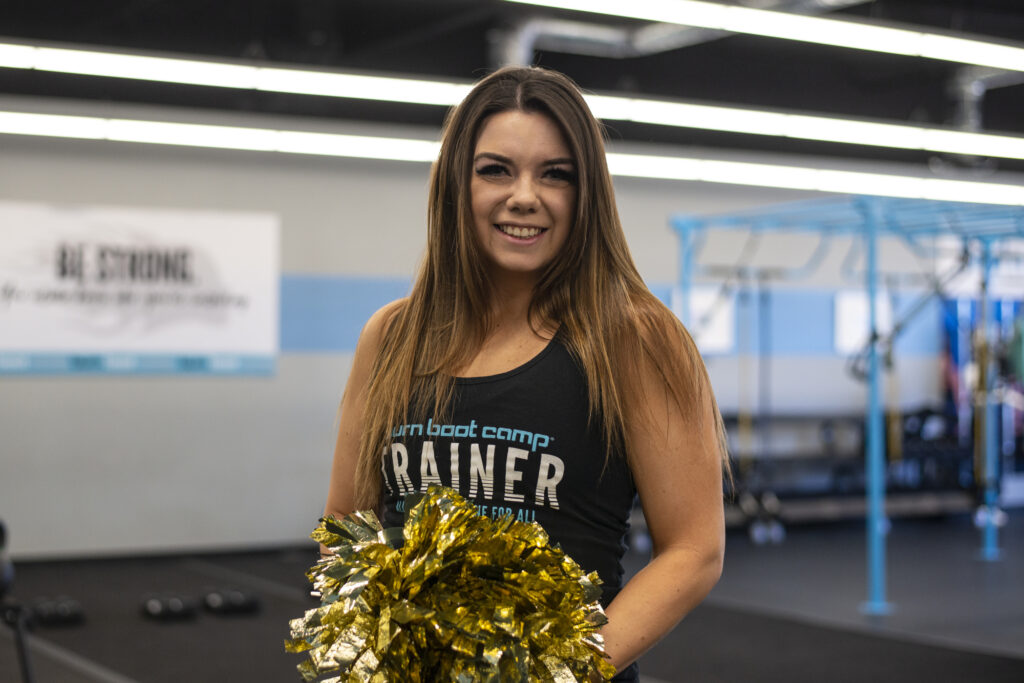
Sara Simpson, 25
Trainer, dancer and cheer instructor
I have a lot of smaller jobs in Vegas that add up to my total wage. Some are traditional part-time, and others are independent contractor gigs.
I started my career teaching dance classes at a local studio where I brought home about $120 a week. I was still living at home then, so it wasn’t a big deal. Around the same time, I also started working at a gym where I got paid $10 an hour to work their front desk. After I graduated from college with a degree in kinesiology, I took over a trainer position at the gym, which helped bump my paycheck up a bit. I also found an opportunity to be the assistant coach of a cheerleading team at a high school in the area, which pays me about $450 a month.
After I’d gotten all those things started, the pandemic hit, and the only job I was getting paid for was my job at the gym. I spent time teaching online sessions, which helped me out. During all of this, the local hockey team, the Golden Knights, had open tryouts for their dance team. It was weird; because no one was working, basically anyone with dance experience in town was there. I made it through the auditions and started dancing at games about once a month. At the end of last season, during the playoffs, things picked up. And now this season has been a little more normal, which is great. More recently, I became the head cheer coach at a local private school.
“For a lot of people in Vegas, you put together a bunch of little jobs to make a living.”
Sara Simpson
With all of these jobs put together, I’m bringing in about $2,700 a month now. A lot of people ask me how I do it, and I tell them that there are way more people like me than they think. For a lot of people in Vegas, you put together a bunch of little jobs to make a living.
And none of these jobs are for the money, really — I just love them all. It just works out that I’m able to make a living out of it.
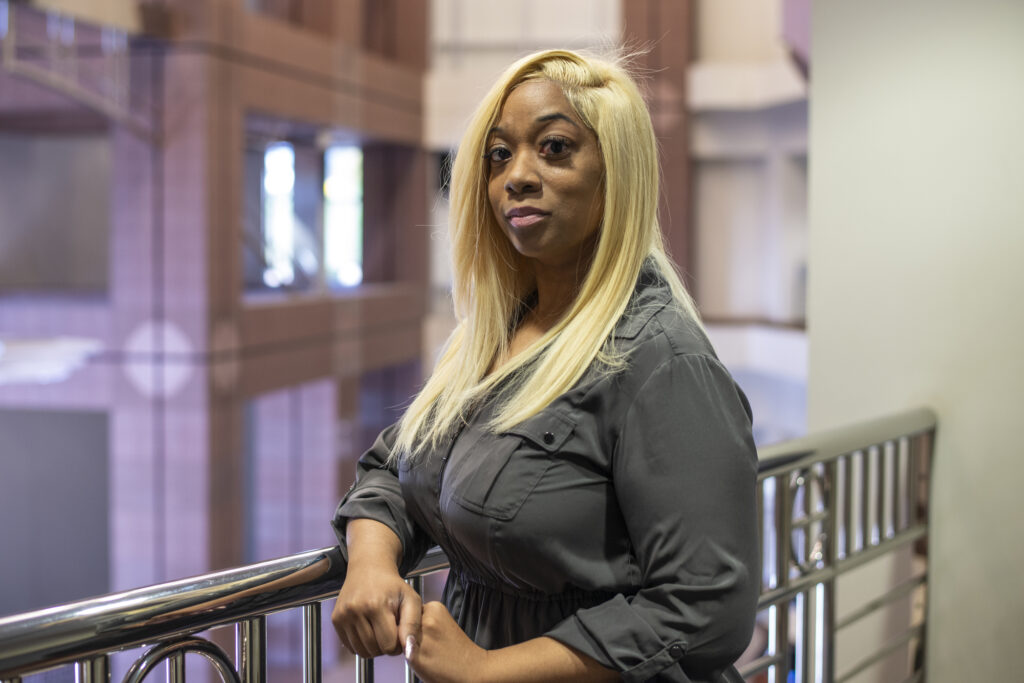
Precious Briggs, 33
Cocktail server
I started as a cocktail server about two years ago with a local casino chain, making about $12 an hour. A lot of my paycheck, like a lot of people in Vegas, came from tips. That first job was a full-time union job, so I was able to engage in the process to get our wages increased and have some job security. Nevada is an at-will employment state, which means that without union support, employers are free to fire employees for basically any reason. So, having that support was really reassuring.
When Covid-19 hit, I was laid off, and I spent my time just looking for work. I was able to get unemployment during that time, but as you can imagine, it was much less than I was used to bringing home. It was a struggle. I spent my time looking for work and waiting to be called back.
The state actually passed a law during the pandemic that was supposed to secure what they called the “right to return.” The casino I used to work at opened back up, but unfortunately it seems like they’re not following the law, and I still haven’t been called back. I was able to get another job as a cocktail server at another casino. But something that’s making it even harder for me now is that the IRS has increased tip allocation starting this year. My paycheck is a lot smaller than before. It’s really affected my family, and I just hope that I can get my job back.
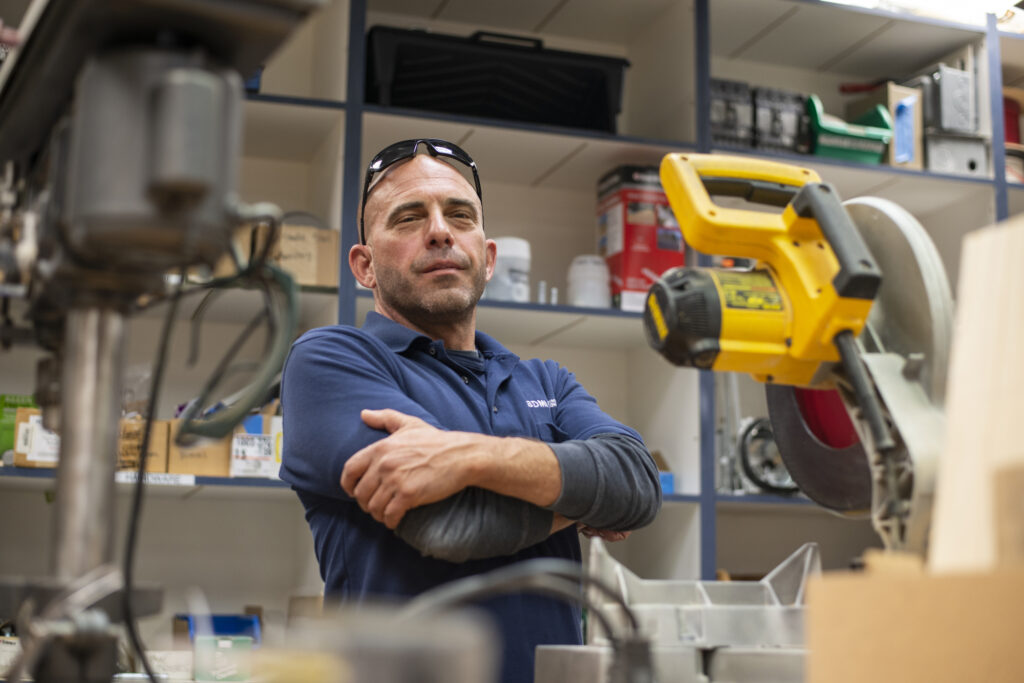
Joseph Marzigliano, 48
Maintenance administrator
When I was a kid, I started work as a busboy at a catering company in New York. I had a bunch of jobs in New York and then some in Texas, but my first job here in Vegas was at a handyman company. I worked there for about six years until I started working for the company I work for now.
A friend of mine knew there was an opening at a chain of medical centers in town and called me up. I dropped everything I was doing and got the job pretty much on the spot. I said some pretty cocky things about my skills during the interview, so I thought I’d blown it. But they called me and offered me the job pretty much the same day. I made around $30,000 a year starting out, and I’ve been here ever since.
My first position, I was the night guy at one of the buildings. Within about a year, I was promoted up to lead for the building. And I’ve been climbing up the flagpole ever since. I oversee all the buildings now and make sure that everything is working right. The plumbing, the lights, all that. That’s part of what I love about the job: I like the people that I work with, and I like that every day is different. I might be working on repairing a door, and the next day I might be doing plumbing.
During the pandemic, it was weird. We were able to work our usual 40 hours a week, and I didn’t lose one day of work. A lot of companies weren’t doing that. There were gates in front of all the hotels. It was crazy, and I was grateful that they kept this place open, which is awesome.
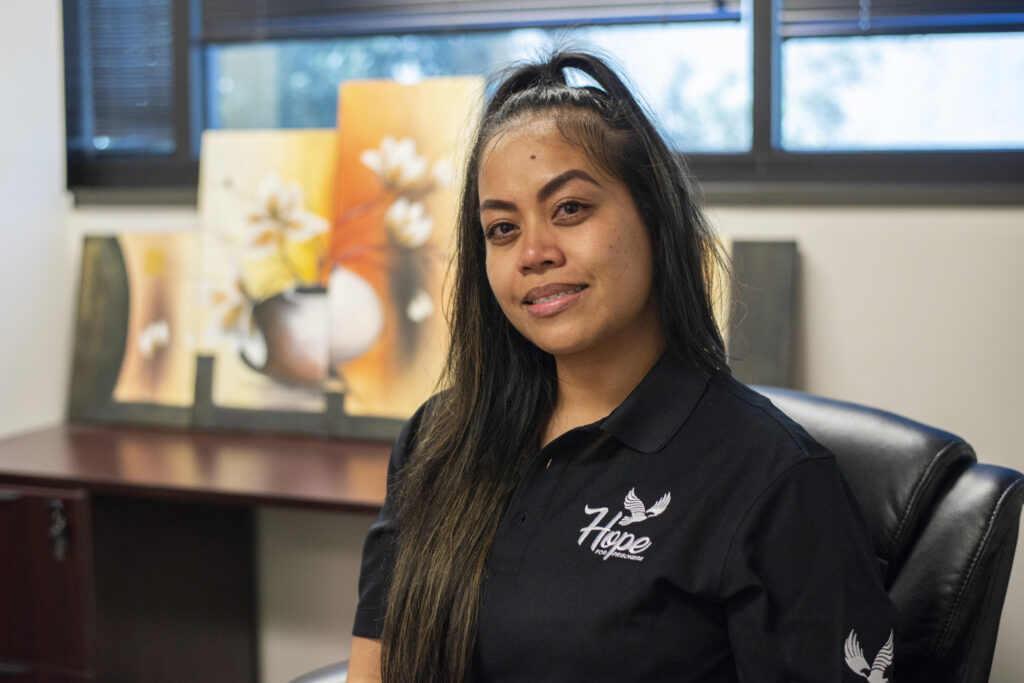
Geetha Green, 36
Re-entry supervisor at Hope for Prisoners
I started working at 18 as an exotic dancer, but I always maintained another job on the side as well. Since you’re an independent contractor as a dancer, with a regular job I was able to maintain a pay stub. The money in dancing is really good in Las Vegas.
Eventually my dancing career led me down a path that was really dark. The entertainment business can either make you or break you. My boyfriend went to prison for dealing drugs, and I continued to support him. It was a very toxic relationship. My friends never really knew the life that I was living.
When I had my son at 22, I realized it was time for me to rebuild myself. I did some work in Elko, a small town, and I met my husband out there. He was the man that I had prayed for, totally square.
I decided to stop dancing and keep my job as an assistant with a realtor. But all it took was me going out once with a good friend to do a little credit card scheme, and next thing you know I was looking at federal time. I caught three felonies, served six months and was released on federal supervision. When I went back for sentencing, I had just had another child. The judge told me he saw me as someone who could make a difference in the world.
But now that I was a felon, all these doors were shut in front of me. I couldn’t get a permit to be able to dance. I found Hope for Prisoners, a re-entry program, and it changed my life. They got me a job working at a casino, and I worked there for almost three years. I made enough there to make everything work.
About three years later, I asked Hope for Prisoners if I could come work for them. I came on as a case manager to help other people with stories like mine. This year, I was promoted to re-entry supervisor. Now I work with community leaders and even the people who put me in jail — prosecutors, judges, police. It’s been one hell of a ride. I might make about half of what I did as a dancer now, but it’s worth it, because I am truly happy.
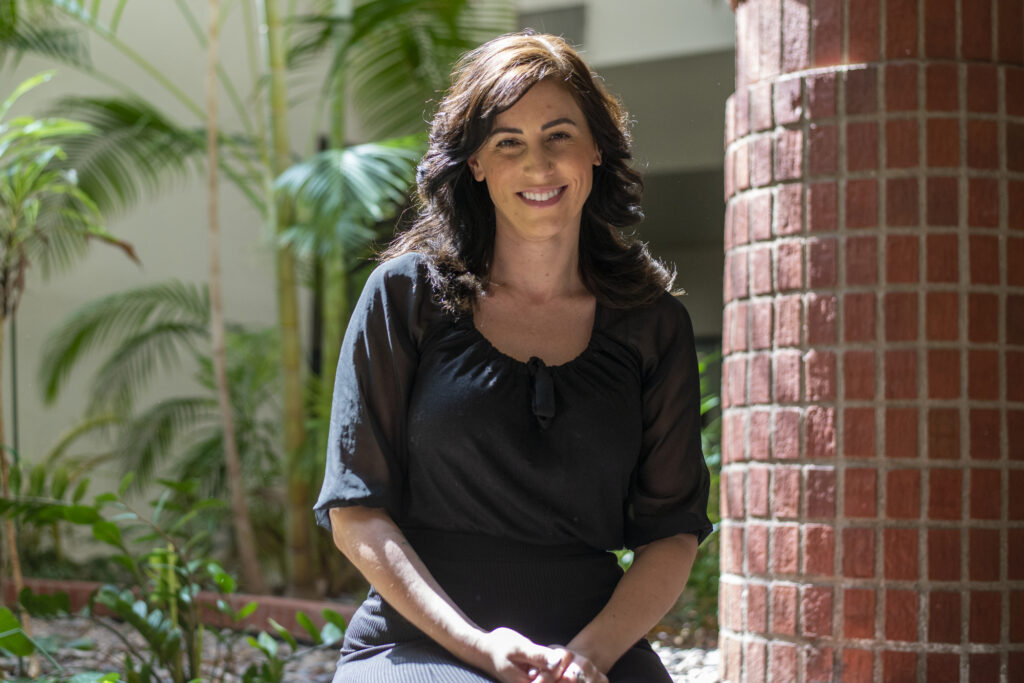
Mindy Browne, 34
Human resources manager and bartender
I started out working various jobs in the food service industry all through high school and then college. I made good money in the industry. I was making about $60,000 a year, but when I graduated, I wanted a career where I could use my communications and political science degree. I spent about two years trying to find something and eventually found a position doing human resources work for a casino on the strip. To make that switch, I took a $30,000 pay cut. It was a huge lifestyle change that I wasn’t quite used to. I figured that it was a stepping-stone, and I’d eventually get back there.
What I didn’t realize is that in Vegas, human resources jobs in hospitality don’t pay very well because they’re not a revenue-generating part of the ecosystem. I struggled a bit, so I moved into another position as an education supervisor at another property and stayed there for two years. But I quickly found out that there wasn’t anywhere to move up. I dipped back into HR and took a management position that offered me around $45,000 a year. That allowed me to start planning for a family and a house.
After I spent a bit more time there, I reevaluated how things were going and realized that I was working 12-hour days and wasn’t seeing my family enough. So I went back to serving at a restaurant. In three or four days a week, I was making the same amount of money I made as a full-time HR manager. It was hard for me because I enjoyed the intellectual stimulation of my HR job. I did the switch again, and then came back to serving. It was hard for me to find the balance.
Now I bartend one or two days a week, and I also took an HR job with a nonprofit advocacy group. So I get to work at a job that I believe in and also have the additional income from my bartending. I make, combined, around $60,000 a year now, and I have the flexibility and the intellectual challenge I was hoping for.
Read more
Sign up to keep up to date with ReThink Q.







